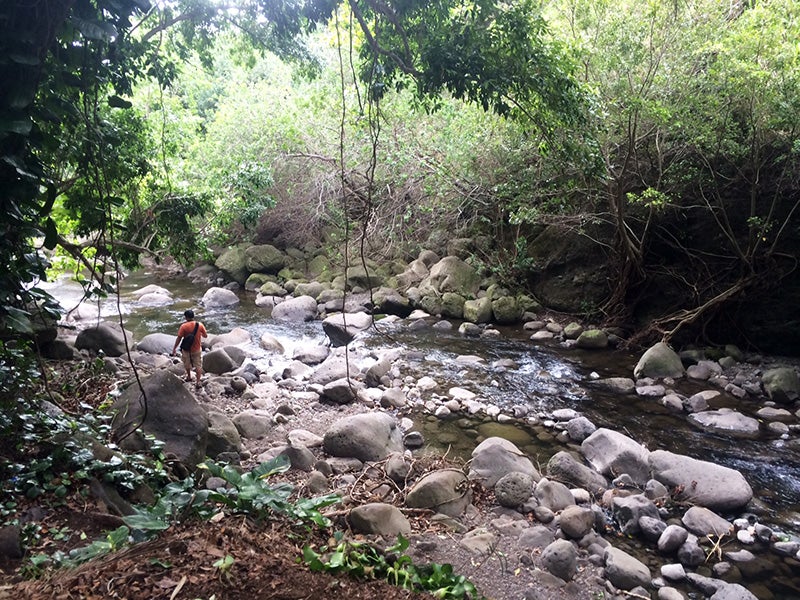Maui Communities Celebrate Return of Flow to Maui Streams after More Than a Century
Victory
—Millions of gallons of water from industrial diversions return and restore flows to culturally significant waters
Contact
The Office of Hawaiian Affairs and Earthjustice, on behalf of community groups Hui o Nā Wai ʻEhā and Maui Tomorrow Foundation, today celebrated the return of millions of gallons of water to ʻĪao Stream (traditionally Wailuku River) and Waikapū Stream in Central Maui after more than a century of diversions that had drained the streams dry.
“From our perspective, this is an uplifting moment and a great example of the Hawaiian community and others working together to do the right thing for Nā Wai ʻEhā streams and all that they nurture,” said Kamana‘opono Crabbe, the Ka Pouhana and Chief Executive Officer at OHA.
This restoration of stream flows is occurring more than two years after the Hawaiʻi Supreme Court ruled in the Nā Wai ʻEhā (“The Four Great Waters”) case in favor of OHA, Earthjustice, and a broad-based alliance of farmers, cultural practitioners, environmentalists, and their supporters.
In April, the state Commission on Water Resource Management approved a settlement in which Wailuku Water Company and Hawaiian Commercial & Sugar agreed to restore up to 10 million gallons a day (mgd) to Wailuku River and 2.9 mgd to Waikapū Stream.
The settlement also maintained the restoration of 10 mgd and 2.5 mgd to Waiheʻe River and Waiehu Stream, respectively, which the Commission had ordered in 2010.
The decade-old Nā Wai ʻEhā case has thrust into a spotlight the law in Hawaiʻi that water is a public trust and not private property, and that such resources cannot be diverted without considering the impact on Native Hawaiian traditional and customary practices, stream and ocean ecosystems, and drinking water.
This restoration of stream flows signals another step forward in ongoing community efforts to enforce the law and stop companies from draining rivers and streams dry and hoarding the water for private profit.
At the same time, more work remains in the Nā Wai ʻEhā case. Parts of ʻĪao and Waikapū Streams remain dry. There is also work to be done to ensure, for example, that the remaining diversion dams are modified to enable passage of native stream life. Most importantly, the same attention must extend to East Maui and across the islands, where 90 percent of all streams are being diverted.
“We join with the community and OHA in celebrating this hard-won and long-awaited restoration of stream flows,” said Isaac Moriwake, an attorney for Earthjustice. “While more work and continued vigilance will be needed to protect these resources, we take this moment to witness another step in the march of progress for these streams and others throughout Hawaiʻi nei.”
Crabbe added: “Though we have only a partial victory, it is an important one worth celebrating. All four Nā Wai ʻEhā streams are flowing again. And we have an important legal precedent that will bring future victories for our environment, for Hawaiian cultural practices, and for everyone who relies on our islands’ drinking water reserves.”

Additional Resources
About Earthjustice
Earthjustice is the premier nonprofit environmental law organization. We wield the power of law and the strength of partnership to protect people's health, to preserve magnificent places and wildlife, to advance clean energy, and to combat climate change. We are here because the earth needs a good lawyer.